
Research Project "GEO-POWER-EU - Empowering the Geopolitical EU in the Eastern Neighbourhood and the Western Balkans'',
Main Coordinator: University of the Peloponnese
Partners: Consortium of 14 partners from 12 countries.
Duration of the project: 1 June 2024 - 31 May 2027

Starting in June 2024 and continuing for three years, a consortium of 14 partner institutions, coordinated by the University of the Peloponnese, has embarked on the “GEO-POWER-EU: Empowering the Geopolitical EU in the Eastern Neighbourhood and the Western Balkans” project. The project is funded by the European Union’s H2020 Research and Innovation programme. In the wake of the war in Ukraine, the European Union has moved to enhance its geopolitical influence beyond its immediate borders, particularly in the Western Balkans (WB) and Eastern Partnership (EaP) countries. This shift underscores an urgent need to bolster the EU’s strategic thinking and actions. Consequently, GEO-POWER-EU is based on the premise that the EU’s enlargement and Eastern neighbourhood policies require revision to reflect a new geopolitical vision for these regions. The primary objective of the GEO-POWER-EU project is to enhance the security dimension of the EU’s policies in the Eastern Neighbourhood and the Western Balkans. The project aspires to develop a comprehensive EU strategy for these regions, taking into consideration foresight concerning the strategic ambitions of other geopolitical actors. GEO-POWER-EU will:
- propose ideas for the adaptation of the EU Enlargement policy and the reform Eastern Partnership policy
- assess the influence of other geopolitical actors and provide strategic foresight about the prospects of geopolitical competition in the two regions
- explore the growth of the EU’s ability to contain military threats
- propose a comprehensive and multidimensional EU strategy that will guide relations with the countries in the Western Balkans and the Eastern neighborhood.
Project Partners
- University of the Peloponnese, Greece (Project Coordinator)
- Southeast European Research Center (SEERC), Greece
- European Neighbourhood Council (ENC), Belgium
- University of Bologna, Italy
- The Vienna Institute for International Economic Studies (WIIW), Austria
- University of Rijeka / Academy of Applied Arts of the University of Rijeka, Croatia
- Institute for Democracy Societas Civilis, North Macedonia
- University of Belgrade, Serbia
- VE Insight, Austria
- Democratization Policy Council (DPC), Germany
- Institutul pentru Dezvoltare și Inițiative Sociale (IDIS) Viitorul, Moldova
- Odesa Mechnikov National University, Ukraine
- Georgian Foundation for Strategic and International Studies (GFSIS), Georgia
- Utrikespolitiska Institutet, Sweden
The GEO-POWER-EU project is funded by the European Union under grant agreement ID 101132692.
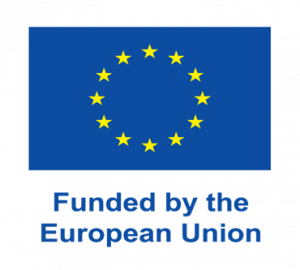
Research Project «Co-Producing Knowledge On Sustainable Growth through Service Learning» (COPAFEU), Project ID: 101128829 — COPAFEU- ERASMUS-EDU-2023-CBHE
Duration of the project: 1/3/2024-28/2/2027
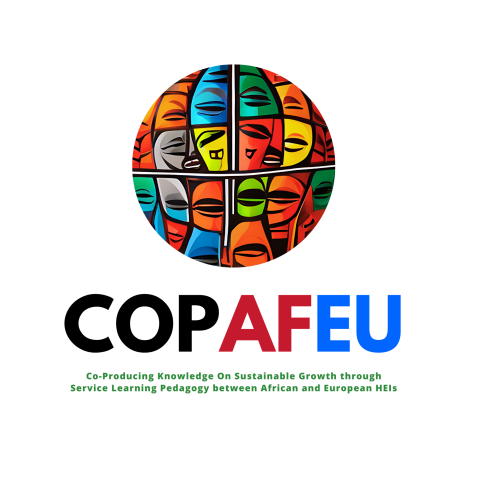
COPAFEU is an international research programme funded by Erasmus+ , that aims to promote E-Service Learning (E-SL) methodology among HEIs and non-academic actors in Ethiopia, Nigeria, Tanzania and South Africa. Moreover, the project aims to promote:
-
Cross-disciplinary courses and interactive modules created in COPAFEU.
-
Three MOOCs and 15 online courses using the open access data/material platforms.
-
A set of two degree/certificate/program templates and guidelines, which can be piloted after its completion.

Research Project “AfriquEurope: The European Union and Africa in a Multi Crises World”, Project ID: 101127755 ERASMUS-JMO-2023-NETWORKS - (Jean Monnet Policy Debate)
Main Coordinator: University of the Peloponnese
Partners: Consortium of 24 partners από 33 countries.
Duration of the project: 2024-2027
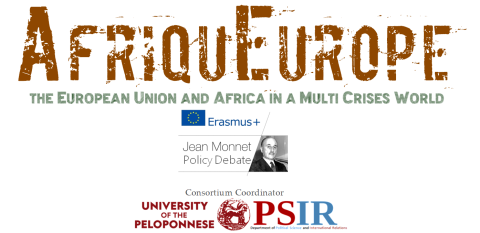
The AfriquEurope project is the largest - in terms of number of partners - intercontinental research network between European and African universities to conduct research and knowledge exchange in the field of social sciences, with the aim of producing policy proposals for both the European Union and the African Union.
AfriquEurope focuses on issues related to understanding the full range of EU-Africa relations and seeks to promote regional and continental integration in Africa.
AfriquEurope's objective is to support the EU's efforts to redefine its partnership with Africa while strengthening cooperation between the two continents.
The project involves partners from universities and research centres in 33 French-, English- and Lusophone African countries with the University of the Peloponnese as coordinating partner.

Research Programme “Social Impact Manager (SIM)”, Erasmus+ (EDU-2022-PI-ALL-INNO)
Main Coordinator: University of the Peloponnese
Partners: Consortium of 14 partners from 6 countries: Greece, italy, France, Austria, Croatia, Belgium, Ireland.
Duration of the project: 2023-2026

The aim of the SIM project is to gradually change the attitudes and perceptions of society towards the concept of social value, creating conditions in which the invocation of social value and social impact will increasingly become a prerequisite for the implementation of actions, initiatives and investments. The term social impact is used interchangeably with the term social outcome or social benefit. In this context, the SIM project seeks to establish the role of the Social Impact Manager as a new profession that will identify the values created by the allocation of funds, while creating a more effective system of social control. Ex-ante social impact assessment contributes to a) a holistic approach to value from the economic, environmental and social aspects, b) providing reliable and meaningful information through numerical results on the effectiveness of actions, c) improving the evaluative capacity of all those affected by the implementation of projects, actions and investments, d) gradually changing attitudes and perceptions as to what is considered socially beneficial, and e) improving the efficiency/effectiveness in terms of cost.

Research Project “Improving VET Distance Learning Through a Gamified
Asynchronous eLearning Methodology (d-ICT)”, Erasmus+ ΚΑ220-VET
Main Coordinator: University of the Peloponnese
Partners: Consortium of eight partners from seven countries: Greece, Cyprus, Italy, Spain, France, Portugal, Belgium.
Implementation Period: 2021-2023
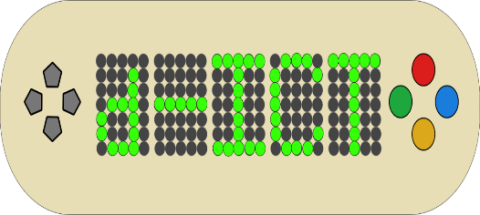
The main objective of the d-ICT project is to create an innovative pedagogical method in asynchronous professional education. It aims to promote the attractive side of distance education, through gamification. Τhe main idea of the program was inspired by the late Professor Nikitas-Spyros Koytsoukis, who was initially the scientific director.
Research Programme HORIZON 2020 KIDS4ALLL
Coordinator: Universita Degli Studi Di Torino supported by a consortium of 17 partners from 11 different countries (Belgium, Bulgaria, Germany, Greece, Hungary, Israel, Italy, Malta, Norway, Spain and Turkey).
The University of Peloponnese acts as deputy coordinator.
Project KIDS4ALLL (Key Inclusive Development Strategies for a Lifelong Learning)
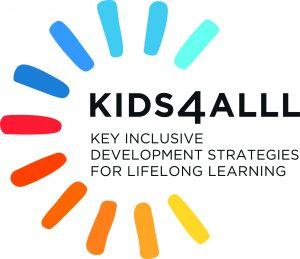
KIDS4ALL (Key Inclusive Development Strategies for a Lifelong Learning) focuses on the education that facilitates the integration of migrant minors (in particular unaccompanied minors, refugees and asylum seekers). It encloses the creation of a series of educational tools such as the KIDS Learning Platform and the Learning Laboratories as well as the implementation of numerous activities and events in cooperation with civil society organizations (in Greece in cooperation with ARSIS).
Implementation Period: 01/04/2021-31/03/2024
Citizenship Engagement Through Economic Literacy Gamification in Adolescents “CETERIS PARIBUS” – Erasmus+ Programme
CETERIS PARIBUS aims to enhance the understanding of economic theory and the impact of economics on citizens’ and especially young people’s perception of the world around them and their place in it as active citizens. Through the development of an interactive educational material, a handbook for youth workers on how to approach financial education, as well as a modern educational e-game, the project aims to engage young people and youth workers from across Europe in an exploration of important financial terms and theories, in order to strengthen their participation in all democratic processes.
Project Start Date: 01/04/2022 Project End Date: 31/12/2023
Civic Debate Club
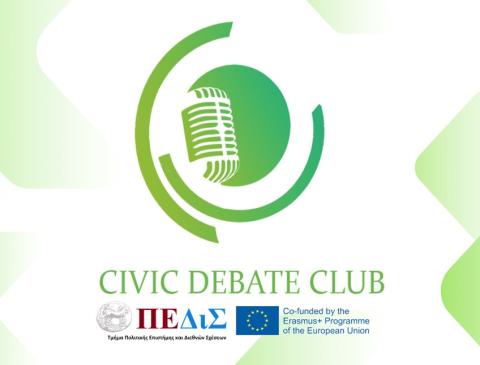
The Civic Debate Club is a program that aims to raise awareness among young people about their active participation in society and to enhance their participation in political and social activities through the process of debates. The project is based on the development of an educational material which will incorporate practices from debate clubs and which will be adapted and made available to organizations active in the youth sector. The training material will significantly support youth workers in their efforts to encourage youth civic participation through their participation in debate clubs, while also acting as a key tool in their efforts to teach young people the practices, norms and the tips of political dialogue. At the same time, it will improve the skills of the youth workers themselves and make their work much easier.
Project Start Date: 01/11/2021 Project End Date: 01/09/2023
“Deciphering the formulation of Greek economic diplomacy towards the Western Balkans (DEFORM–GR–WB)”, The London School of Economics and Political Science, Hellenic Observatory, H2020 Grants
Although the economic crisis caused a decline in Greece’s influence in the Western Balkans, Athens attempted since 2016 to resolve bilateral differences and to re-emerge as a regional actor. While trade transactions have returned to pre-crisis levels, both the flow and stock of Greek FDIs in the region have kept decreasing. Beyond the impact of the economic crisis (e.g. departure of Greek banks from the region), Greek businesses have been confronted with a more challenging environment due to the slowdown of EU enlargement and the rise in influence of non-Western external actors, and domestic trends such as democratic backsliding, state capture and deterioration in the rule of law.
This project will map out state and non-state economic linkages between Greece and the six Western Balkan non-EU member-states (Albania, Bosnia and Herzegovina, Kosovo, Montenegro, North Macedonia and Serbia). It will explore how the preferences of different state agencies and private actors maintaining these linkages are taken into account and impact upon the formulation of the Greek state’s economic diplomacy priorities. It will also examine how Greek state and non-state actors perceive international constraints to their activities, consisting of adverse systemic, regional and domestic factors and trends. The aim is not to assess the effectiveness of Greek economic diplomacy, but to delve into the process of the Greek national preferences’ articulation in order to see whether and how different sectoral preferences are communicated and processed. In this way, the project aspires to make recommendations for the optimization of Greek foreign policy decision-making.
Duration of Programme: 1/9/2020-31/8/2021
Informant Diasporas in EurAfrica for Legal Migration (IDEAL-Migration)
The Project IDEAL-M, funded under the Asylum, Migration and Integration Fund (AMIF), aims to raise awareness about the dangers of illegal migration and misinformation about the journey to Europe as well as the actual conditions when reaching the hosting countries. The IDEAL-M is focusing on Senegal as a country of origin with the principal aim to inform Senegalese people about the benefits of legal migration through mobilizing the diaspora communities already settled in Europe and developing a communication campaign in Senegal.
Project Consortium: University of the Peloponnese (UoP) (Leader) – Greece, Providers of Social Responses to the Development (PRSD) – Portugal, African Media Association Malta (AMAM) – Malta, Migrafrica – Germany, Universidad Autónoma de Madrid (UAM) – Spain, Greek Forum of Migrants (GFM) – Greece, Hellenic Agency for Local Development and Local Government (E.E.T.A.A.) – Greece.
EU Middle East Network In Action (EUMENIA)
EU-Middle East Network in Action (EUMENIA) is a Jean Monnet Network and is comprised of seven more institutions namely the University of Peloponnese – Greece, Istituto Affari Internazionali – Italy, Roskilde University – Denmark, BirZeit University – Palestine, Yasar University – Turkey, American University of Beirut – Lebanon and University of Jordan – Jordan. The rationale of this interdisciplinary partnership is to encourage exchange of academic best-practices, bridge the gap between policy-making and academic world and create a thematic transnational research group. EU-Middle East relations constitute a cornerstone of the EU’s external relations and engagement with its neighbourhood. How has the EU been constructed in the Middle East debate and how has the Middle East been constructed in the European debate? These interlinked fundamental questions will guide the work of the network as they have a direct impact on how the EU and the Middle East are constructed, taught and understood by the European and Middle Eastern societies, students, academics and policy makers.
Ages of Marathon – Τ1ΕΔΚ-04639
he aim of the project is to develop a specialized Digital Game on the Classic Marathon of Athens. The game, is designed to operate by a specialized platform of multi-dimensional computing graphics and synergies, and through the Internet and smart mobile devices. Further, it sets out to:
- motivate athletes and support them to run the Athens Marathon
- improve athletes’ knowledge about the history of the Athens Marathon, from ancient times until the present day
- contribute to communicating and socializing athletes’ experiences with their relatives and friends,
- develop synergies with agencies and institutions associated with the Athens Marathon to enhance the impact of the Marathon on athletics, culture, tourism, economics and society,
- showcase participation and engagement of all sorts in the Athens Marathon as a unique and constructive experience of life.
Thales II: Mapping and evaluating Greek NGOsΠρόγραμμα
The project “Thales II: Mapping and evaluating Greek NGOs” has a duration of two years and is implemented by the Department of Political Science and International Relations of the University of the Peloponnese in collaboration with the NGO HIGGS. Thales II is being funded by five charitable foundations: TIMA Charitable Foundation, Stavros Niarchos Foundation, Athanassios K. Laskaridis Foundation, Captain Vassilis& Carmen Constantakopoulos Foundation, John S Latsis Public Benefit Foundation
Thales II has the following objectives:
- First, to continue mapping and evaluating the Greek NGO ecosystem, offering all stakeholders (NGOs, funders, volunteers, researchers, the media, the wider public, etc.) a complete and objective image of the sector.
- Secondly, to include in the evaluation process new, qualitative criteria to complement the quantitative ones used in Thales I.
- Thirdly, to explore the possibilities of improving the credibility of NGOs in Greece and
- Fourthly, to promote volunteering, broaden participation, raise awareness, and increase visibility and donations.
The Chinese Grand Strategy and Greece (NSRF-2014-2020)
The research project focus on the study and analysis of the Grand Strategy of China as it is expressed in its relations with Greece during the period since 2006. It aims at investigating whether the Sino-Greek relations are part of a Chinese Grand Strategy as this has been portrayed in institutional documents or they are part of unrelated, ad hoc activities focusing on trade/economic issues.
Implementation Period: 03/03/2019 – 02/07/2021
Encouraging active citizenship and participation via empowerment of young EU citizens (EURVoice), Erasmus+ KA2
EURvoice is an ambitious project set to improve the skills of youth workers and youth organisations staff to encourage civic engagement, responsibility, and participation among young people. EURvoice aims at increasing the awareness of young EU citizens regarding active citizenship and civic social activities in their local communities.
Implementation Period: 01/06/2020-31/03/2022
Gamification of media and digital literacy for youth, Erasmus+ KA2,
gaMEfy is a research project aims at the creation of an educational tool directed to young people concerning media literacy, based on artificial intelligence technology. It focuses on the issue of fake news and how these are effecting young people’s mobilization, through the use creation of educational material and its dissemination via an electronic game supported by AI.
Implementation period: 01/06/2020 – 31/01/2022
“Food and Humanitarian Non-Profit Organizations in Greece: Synergies, Networks of Knowledge and Innovation”, Program ΕΔΒΜ34 “2nd Call for Support of Researchers with a focus on New Researchers” – Greek NSRF 2014-2020
An increased need for the provision of humanitarian services has been observed in Greece during the last decade, due to the economic crisis and the refugee/migration flows. In this context, non-profit organisations have emerged as one of the main pillars of the effort to address the needs of vulnerable populations.
The proposed research aims to examine whether the food and humanitarian non-profit organisations operating in Greece, develop synergies aimed at transferring knowledge, enhancing innovation and generally increasing the effectiveness of the assistance provided. Furthermore, the research is also examining the efficiency of in-kind assistance.
Geographically, the research will focus on food and humanitarian non-profit organisations operating in Attica, Thessaloniki and Lesvos island. Methodologically, the research will be based on the formulation of hypotheses and their testing, taking advantage of the international literature and global trends, as well as the analytical framework of the theory of proximity developed in the field of Economic Geography. In terms of data collection, the research will advance in the three consecutive phases: relevant literature, sending of closed questionnaires to non-profit organizations and lastly, conduct of unstructured interviews with selected representatives of organizations that have significant experience and recorded activity in the relevant fields of interest. The project will lead to policy proposals aiming to improve the effectiveness of aid provided by food and humanitarian non-profit organisations.

Implementation period: 1/3/2020-31/5/2021
"Christian communities and religious pluralism in the Middle East: International Relations and Religion at the Turn of the 20th and 21st Centuries" - "To support faculty members and researchers and to provide high-value research equipment"
Examining the influence and interaction of Christian communities in the Middle East with the surrounding social, political and economic world and identifying patterns of growth and decline. Research on their international networks and their impact on the resurgence of religion as the most important variable in international politics. Examination of how the ongoing Syrian civil war and the political chaos in Iraq suggest an increasing militarization of religious identity Outline changes in the constitutional and legal frameworks of different countries in relation to insurgencies and/or political and socio-economic changes and transitions in those countries.
Christianity in the Middle East Website [☍]
Implementation period: February 2020 - February 2023
“Voces y miradas literarias en femenino: Construyendo una sociedad europea inclusiva” / FEMIN-UE
It is an interdisciplinary research project funded by the Ministère Espagnol de Science, Innovation et Universités and the Commission, involving universities and research centres from 7 European countries. Key research themes: Women's migration in South-East Europe, cultural representations of the migration phenomenon, legal, social and cultural aspects of the integration of migrant women, etc.
Implementation period: 2020-2022
“The Effects of the Refugee Crisis on Greek Νon-Governmental Organisations”
This research project aims to highlight the effects, positive and negative, of the current refugee crisis on the NGO ecosystem in Greece.
In particular, it seeks to answer the following questions:
- How were the essential elements of the ecosystem affected? (number, size, staff, volunteers, funding, etc.)
- How was the operation of NGOs in Greece affected? (organisational structures, quality of staff and volunteers, capacity, networking, etc.)
- How were the relations between NGOs and the Greek State affected? (Institutional framework, coordination, facilities, etc.)

AMIF-2016-AG-INTE-01 «ARTS TOGETHER»
Integrating migrant children at schools through artistic expression
The Arts Together project aims at developing and testing a curriculum based on artistic activities and collaborative approaches that will be used in order to equip teachers for dealing with diversity, fostering mutual understanding and respect among their students and improve the educational performance of migrant students. The activities will have direct beneficiaries, children of migrant background which will create a collaborative space with native children and will overcome linguistic and cultural barriers. The action will be mainstreamed by organizing events with educational organisation and public authorities providing policy recommendations at educational and schooling level.
«ATSIV»
Advancing the Third Sector through Innovation and Variation (Εrasmus+)
ATSIV is an Erasmus+ project that aims at actively contributing to the professional development of NGO workers. ATSIV analyzes the state and the needs of training across Eastern Europe; co-creates with stakeholders and in an open innovation manner, game-based curricula that will enable NGO workers to upgrade their competencies; develops an open virtual learning/co-creation & training environment in order to support virtual mobility towards active citizenship and social cohesion by reducing financial & disability barriers to transnational cooperation.
«Blend-IN» (Erasmus+)
Blend-IN project aims to promote tolerance, diversity and intercultural learning in the European communities, enacting to positive change for different societal groups. The project promotes quality youth work, having as an objective to assist in the development of high-quality education for youth workers. In this respect, Blend-IN project, will gather and educate youth workers, giving them the necessary tools and know-how to handle the vast responsibility of nurturing, managing, and inspiring their local communities. The action will be mainstreamed through staff training and mobility for youth workers intended to build on their competences and provide them with practical skills and knowledge on how to navigate through the dynamic map of tolerance and diversity that Europe presents.
Policy analysis workshop: Policy proposals and measures for youth participation in the new institutional framework for local administration
To create a crucial number of youth well trained and qualified youth through non formal learning techniques on youth participation techniques and mobilization of youth in local societies; To develop and submit policy proposals and measures for youth participation under the new institutional framework for public authorities and local administrations in Greece.
“Thales” – Evaluation of the Greek Non Governmental Organizations
The main objectives of the project are: first, to study the organized Greek civil society sector; second, to examine/analyze different methods of NGO evaluation used internationally and develop an all-inclusive approach; third, to evaluate Greek NGOs according to different criteria (accountability, transparency, efficiency, etc.) and create an Index of NGO Credibility and fourth, to make a number of policy proposals. The researchers participating come from 9 Universities and 3 Research Institutions in Greece and abroad.

“Heraclitus” Programme
The Heraclitus programme (funded by the National Strategic Reference Framework – NSRF 2007-2015) awards research scholarships to PhD candidates for completing their PhD thesis. Within PSIR the following PhD candidates have been awarded scholarships (in alphabetical order by Surname):
- Daphne Athanassouli
PhD Thesis Title (In Greek): “Συγκριτική ανάλυση της διαφθοράς και ανάπτυξης επιχειρήσεων στη Νότια Ευρώπη, την Ανατολική Ευρώπη και την Κεντρική Ασία” (Comparative analysis of corruption and firm development in Southern Europe, Eastern Europe and Central Asia)
Scholarship Duration: 01/09/2010 – 31/08/2013
Supervisor: Pantelis Sklias - Marina Eleftheriadou
PhD Thesis Title (In Greek): “Ανταρτοπόλεμος και Διασυνοριακές Βάσεις (Safe Haven), Οι Διεθνείς Σχέσεις των Ασσύμετρων Συγκρούσεων” (Guerilla war and safe havens. The International Relations of asymmetric conflicts)
Scholarship duration: 01/09/2010 – 31/08/2013
Supervisor: Sotiris Roussos - Vasiliki Petsa
PhD Thesis Title (In Greek): “Πολιτική βία, τρόμος και μνήμη στη σύγχρονη ελληνική και ιταλική λογοτεχνία” (Political violence, terror and memory in contemporary Greek and Italian Literature)
Scholarship duration: 01/09/2010 – 31/08/2013
Supervisor: Vasiliki Lalagianni
ΕΟΧ GR07/3694 «PARTICIPATORY ACTION RESEARCH TO ADDRESS UN-UNDER EMPLOYMENT AT THE LOCAL LEVEL»
The Department of Political Science and International Relations of the University of the Peloponnese, in collaboration with the University of the Aegean, IME GSEVEE and the Work Research Institute (AFI), Oslo and Akershus University College of Applied Sciences (HiOA), Norway, implements the research project entitled "Participatory Action Research to address un-under employment at the local level" in the framework of the project "Participatory Action Research for tackling unemployment and underemployment at the local level" co-funded by the European Economic Area (EEA) Financial Mechanism (FEM) for the period 2009 - 2014.
The main objective of the Programme is (a) to consider the local labour surplus (unemployed and underemployed) as a spatially embedded stock of knowledge, skills and competences, valuable for development and (b) to demonstrate that the problem of underemployment and unemployment concerns the whole community and requires the bottom-up coordination of all its actors (workers/unemployed, enterprises, institutions, etc. etc.) to regain the right to work and upgrade local development structures. The results of the analysis carried out will feed participatory action research to mobilise the workforce, enterprises and other local actors in the development of integrated human capital strategies for sustainable local recovery.
Read more (in Greek only)... [☍]
ΕΟΧ GR07/3546 «DIVERSITY, INEQUALITIES AND SOCIAL INCLUSION»
Overcoming Barriers to a Multicultural Society
The Department of Political Science and International Relations of the University of the Peloponnese in cooperation with the Hellenic Forum of Immigrants and the Association of Public Limited Companies & Ltd. implements the research project "Eliminating barriers to a multicultural society" which is co-funded by the European Economic Area Financial Mechanism under the programme "Diversity, Inequalities and Social Inclusion - Academic Research in Priority Areas".
The aim of the project is to identify the formal and informal forms of barriers that prevent migrants in Greece from fully developing their potential which can enrich the Greek society and economy in terms of innovation, dissemination of ideas and strengthening of cross-border relations through transnational networks. The research focuses on highlighting the main causes of "brain waste" with regard to immigrants while identifying the factors that hinder multiculturalism within Greek society. The project will conclude with the presentation of policy proposals aimed at promoting multiculturalism in Greece.
Overcoming Barries to Multiculturalism Website [☍]
Migrant Language and Social Integration
The EU-funded project entitled ‘Migrant Language and Social Integration’ – in short Mingle – started on November 1st 2012 and will last until October 31st 2014. We aim at teaching Greek and Italian to Bulgarian and Romanian immigrants in Greece, Cyprus and Italy respectively.
The project is managed and coordinated by the Greek software company EXUS S.A and project partners are located in Greece, Cyprus and Italy:
- Greece, Tripoli: University of Peloponnese (UoP)
- Greece, Athens: KMOP
- Cyprus: Cyprus Neu-roscience and Tech-nology Institute (CNTI)
- Italy: Anziani e non solo soc. Coop. (ANS)
MINGLE is conceived as a way of integrating migrants into society and particularly the workforce of the receiving country. The target groups are migrants from Romania and Bulgaria to Italy, Greece and Cyprus, respectively. Learning the language of the host country will help the target groups secure a relevant job and very importantly facilitate their integration into the new country of residence and workplace.
Integration will be achieved by developing a web-based, easy-to-access, easy-to-use Distance Learning Application (DLA), and the respective educational content, for teaching the language of the receiving country to the migrants. Access to the application and the content will be provided to migrant workers and anyone interested in using the application free of charge.
During the project, 30 migrants in each hosting country will be involved leading to a total of 90 users. Users may be people who have just arrived or are already living in the hosting counties, looking for work in tourism or care. These groups will also evaluate the pilot system for a period of at least 4 months, providing the consortium with feedback on the efficacy and effectiveness of the overall educational system, content and application.
MINGLE’s Goals
- Enhance migrants’ quality of life.
- Facilitate their integra-tion to local society.
- Assist migrants become active members of the receiving society.
- Improve their access to language training courses and other guidance and counseling material
